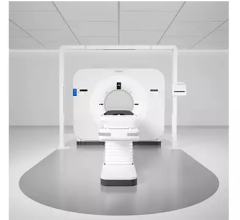April 9, 2008 - Engineers at Purdue University are creating a wireless device designed to be injected into tumors to tell doctors the precise dose of radiation received and locate the exact position of tumors during treatment.
The information would help to more effectively kill tumors, said Babak Ziaie, an associate professor in the School of Electrical and Computer Engineering and a researcher at Purdue’s Birck Nanotechnology Center. Ziaie is leading a team that has tested a prototype “wireless implantable passive micro-dosimeter” and said the device could be in clinical trials in 2010.
“Because organs and tumors shift inside the body during treatment, a new technology is needed to tell doctors the exact dosage of radiation received by a tumor,” Ziaie said.
The prototype is enclosed in a glass capillary small enough to inject into a tumor with a syringe, said Ziaie, who has a dual appointment in Purdue’s Weldon School of Biomedical Engineering.
Research findings are detailed in a paper appearing in the June issue of IEEE Transactions On Biomedical Engineering. The paper was written by doctoral student Chulwoo Son and Ziaie.
Whereas conventional imaging systems can provide a three-dimensional fix on a tumor's shifting position during therapy, these methods are difficult to use during radiation therapy, are costly and sometimes require X-rays, which can damage tissue when used repeatedly, Ziaie said.
The new device uses radio frequency identification, or RFID, technology, which does not emit damaging X-rays.
The device, which has no batteries and will be activated with electrical coils placed next to the patient, contains a miniature version of dosimeters worn by workers in occupations involving radioactivity. The tiny dosimeter could provide up-to-date information about the cumulative dose a tumor is receiving over time.
“It's a radiation dosimeter and a tracking device in the same capsule and will be hermetically sealed so that it will not have to be removed from the body,” Ziaie said.
The same researchers in 2006 reported findings on the first such miniature device. However, the earlier prototype lacked adequate sensitivity, was too large and not suitable for easy implantation, Ziaie said.
New findings detail the development of a miniaturized and more sensitive dosimeter that can be implanted using a hypodermic needle. Researchers tested the prototype with radioactive cobalt.
The researchers have been funded by the National Science Foundation and recently received a two-year grant from the National Institutes of Health to continue the work. Over that time, the research team will work to simplify the fabrication process so that the devices could be manufactured inexpensively.
A key advantage of the technology is that it does not require intricate circuitry, which could make the device easier and less expensive to manufacture than more complex designs. The system consists of simple electronic devices called capacitors and coils.
The device has a diameter of about 2.5mm, or thousandths of a meter, and is about 2cm long, making it small enough to fit inside a large-diameter needle for injection with a syringe. The current size is small enough to be used in tumors, but researchers will work to shrink the device to about half a millimeter in diameter and half its current length, roughly the size of a rice grain, said Ziaie, who is working with Byunghoo Jung, a Purdue assistant professor of electrical and computer engineering.
For more information: www.purdue.edu


 December 11, 2025
December 11, 2025 









